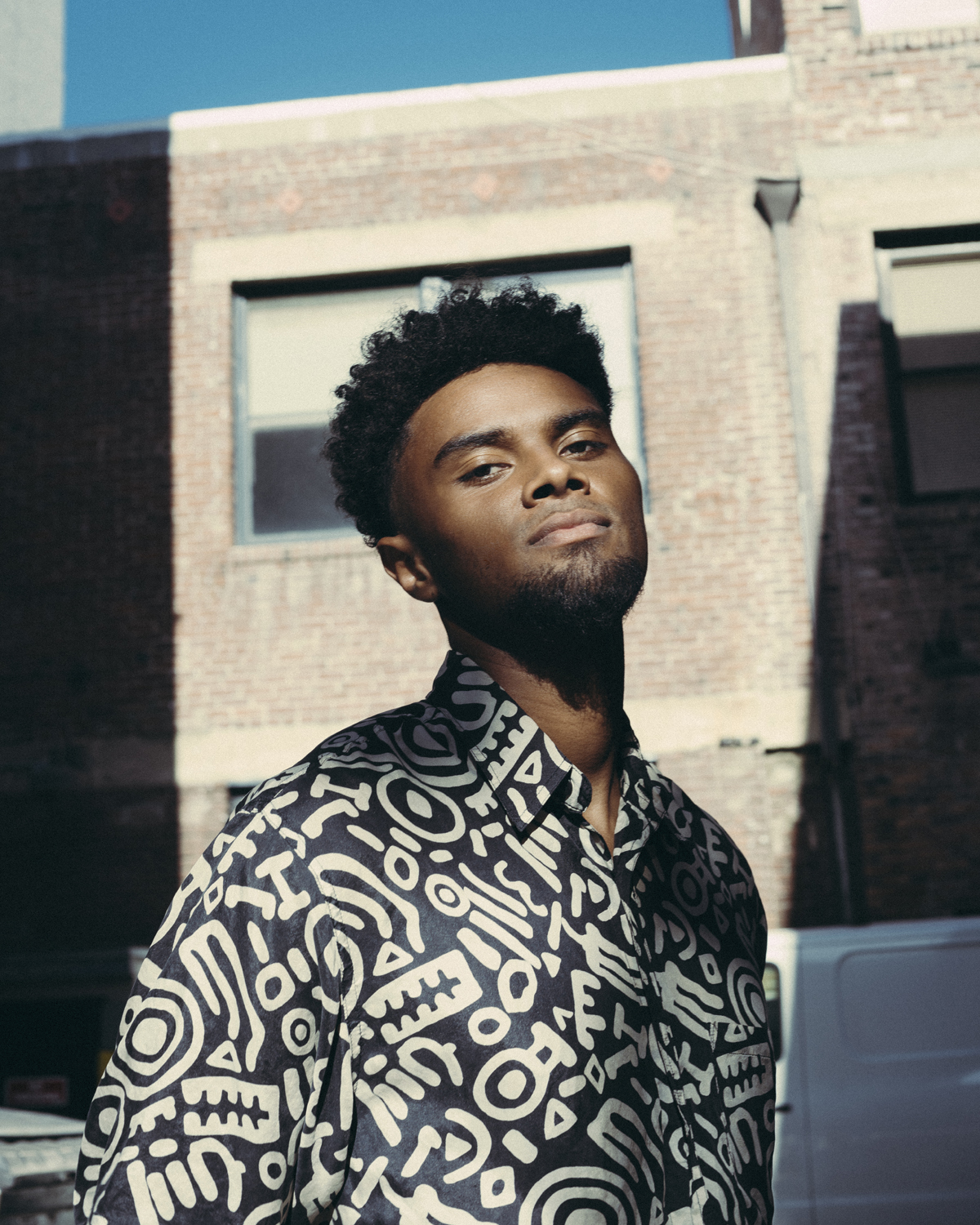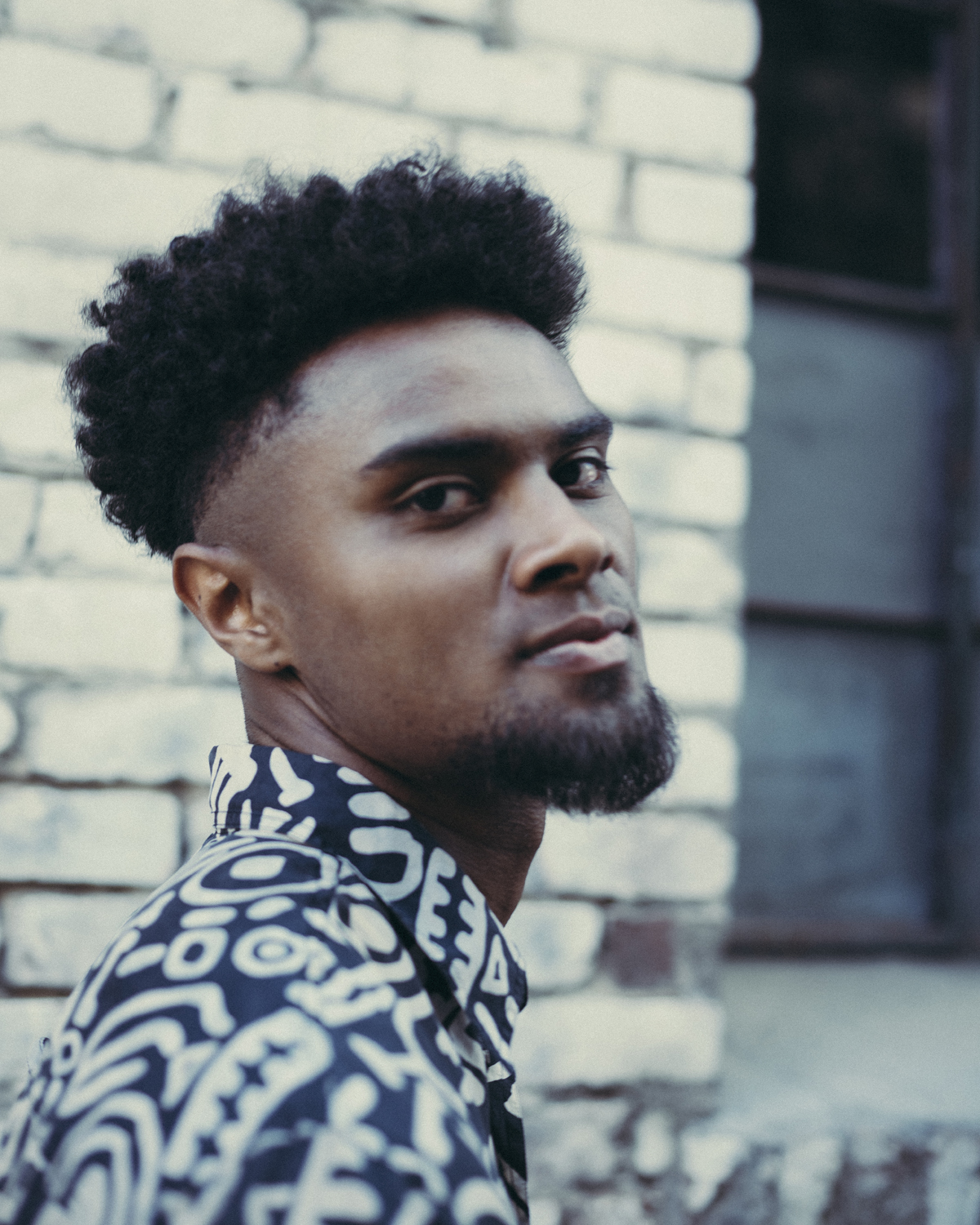Sugi Dakks grew up in Lakeport, CA, which is a tiny town of 5,000 people in Northern California. For a long time, music didn’t seem like a real option for Sugi, who was much more interested in sports, and after that didn’t pan out for him in college, it was actually music that raised him up from his lowest point like an ever-present friend.
“Colors” is one of his most iconic songs, as it came out against racial police violence. “The emotional content and feeling behind performing the song was nothing new, but it was a disheartening and sad feeling to how relevant it has become”, he said about the track.
“Deeply rooted”, one of his latest singles landed on Tidal’s Rising Hip-Hop playlist, as well as becoming the first ever artist to be invited to perform on Sofar Sounds Virtual Tour. And now, this LA-based singer and songwriter brings a fun and vibrant new single named “Normal Sucks”.
The song exposes the stress to which we are subjected as a society, the need to fit into lifestyles that have been imposed to a certain extent and offers the opportunity to open our eyes to reflect on it.
We had a very interesting chat with Sugi to find out more about the new release and what he has planned next.

Sugi, first of all we would like you to tell us a bit about you. We know you started playing piano, but that wasn’t your thing at the beginning, because you wanted to play basketball. Can you identify the moment when you turned your eyes to the music like a serious option?
Yes! So I grew up wanting to play basketball in college, music was very much a side hobby I only indulged in because a lot of my friends were in bands. I used music only as an excuse to hang out with friends really. But when I got to college and unfortunately didn’t make the basketball team, I was devastated as it was most of my identity and passion at the time. I would then start going to the music building to play piano for hours as a coping mechanism as I was struggling to reinvent myself and find a new direction for my life. Over time, I was hanging out at the music building so much that I started becoming friends with some of the music students, going to concerts and listening to music majors who took their craft so seriously. I was so inspired and moved by the people that I met I eventually started taking piano lessons myself, which snowballed into becoming a full-blown music major at the end of my college years. It was an unexpected turn in my life but being on the other side I am very grateful for the hardship and reinvention I had to go through to get where I am today.
Ok, let’s talk about this track. This is a very provocative name for a song. What were you thinking when you decided on the theme you wanted to convey through it?
I come from a mixed-race background. My mother is Japanese and father is African American. I grew up in a small town that was predominantly lower income white people. There was only 4 black people in my high school including myself. I was always being called weird by my friends and never really had a community where I felt accepted, seen, or understood by my peers. I had a backwards journey into music which wasn’t the traditional route of playing music from an early age which led to a professional career. I think these are all examples amongst more of where I have felt this constant feeling of “otherness” from the people around me and the environment I am in. For a long time, I tried really hard to fit into these other communities, but failing to do so in many cases which led to struggles with self-worth and self-identity. I’ve come to a place now where I embrace my differences and don’t see them as flaws anymore. I wanted to create something that was empowering characteristics of myself that were seen as unusual or not standard and really lean into those ideas as something to be proud of.
Are you prone to exploring some concrete topics and rhythms with your music, or are you the kind of artist open to talking about everything and working with any sound you can muster?
I definitely think of myself at least as someone who is trying to push the boundaries. I try not to limit myself to certain sonics and certain ways of creating but always trying to think outside the box in hopes to discover something new for myself. I definitely have a mantra that I use every time I’m in the studio and it’s “be brave.” I say this to try and not stay comfortable with whatever I’m making and not go to place I’ve already been before.
You have an African-American father and a mixed Japanese mother, so we can imagine you grew up with an open vision about race and culture. Is that right? What do you feel your mixed heritage has given you in your musical and personal life?
It definitely has given my perspective and openness when it comes to race/class/gender/etc. I’m really appreciative of the fact that at an early age I saw my father (a black man) and my mother (a japanese woman) and connected those to be my family. Then I would go see my grandfather (a japanese man) alongside my African American grandmother and cousins who would hang out with my white and japanese cousins. I have cousins who identify as lgbtq. It was all very normal to me that my family and extended family didn’t look like me. I later learned that this wasn’t the case for everyone. So many people would not believe me when I told them I had a Japanese grandfather and showed a picture of him. There were times when I’d experience someone thinking I was adopted by my mother because there was no way I could be her actual son. I realized how many others had preconceived notions of what a family should look like and my family did not fit into those ideas. I think because of my background I was able to more quickly deconstruct problematic prejudices and ideas that are ingrained in us from an early age living in the society that we do. I am grateful for this tool that has helped me navigate through culture and the society at large.
Why is it so important for you to stay out of “normal”?
I think it is more of just creating a track that is empowering to those who feel outside the norm or othered by their peers. The ones who don’t necessarily fit in with the usual trend or groups within their respective communities. I think the track is also trying to embrace authenticity and tap into the fact that we are all different and that can be something to celebrate. You don’t have to follow what society tells you is the right thing to do or the correct thing to do. You can carve your own path and that is ok.
There must be persons, rituals, or some other things that you prefer to “keep” normal in your life. True or not? For example, during the pandemic, all of humanity would have liked things to be as they were before.
Yes! I am big on routine. It helps me stay focused and balanced in all aspects of my life. When the pandemic hit, I was very distraught and out of sorts for a while because I lost a lot of work and couldn’t perform my normal routine as the world had shut down. It took me a while to develop a new way of living through that time in order to find some “normalcy” in my life. But I think at large having a worldwide stop sign hit all of us and force us to redirect and refocus was beneficial for a lot of people in terms of priorities and life perspectives.
Who would you like to share the stage with?
I mean… obviously I’m a big fan of Kendrick Lamar, J Cole, Anderson. Paak, Bruno Mars to name a few. The goats of Hip-Hop, funk, soul, that’s my type right there.
What are your top 5 favorite songs at this point in your life?
I’ve randomly been listening to a lot of Japanese rock lately. I honestly can’t tell you the name because it’s all in Japanese and I can’t actually read or speak Japanese very well. But I know the face of the youtube link when it pops up lol. I really like Human Nature (Michael Jackson) obviously. I like Gravity by John Mayer. I like Ab-Soul Outro by Kendrick Lamar. I like Intro by J Cole.
What has been the most difficult part of your musical career?
I mean obviously the hardest part for most people is the marketing. Being able to get in front of an audience that will give you the time of day is tough. Obviously, many musicians (including myself) want to just focus on creating and making art that they like, but if no one hears it that’s a hurdle that has to be dealt with. So I think for me it’s just having the opportunities to play in front of people or get onto some platforms that will allow a bigger pool of people to see if they like my music.
Has your opinion about piano changed through the years?
Yes. The piano used to be very much at the forefront of my musical energy. There was a time when I was practicing 5-6 hours a day and only cared about innovations and growth on the piano. That has dimmed a bit over the years. I play piano for different artists and for different live occasions and I also teach piano. The piano has now become a place of comfort and tranquility for me. I am mainly focusing my creative energy on writing songs and growing as an artist and a lot less on piano, so piano has gone back to a place of therapy for me. I go play piano just to enjoy and release emotion when I need to.

Photo Credit: Zack Bell Story: Mariana Gonzalez
CONNECT WITH SUGI DAKKS
